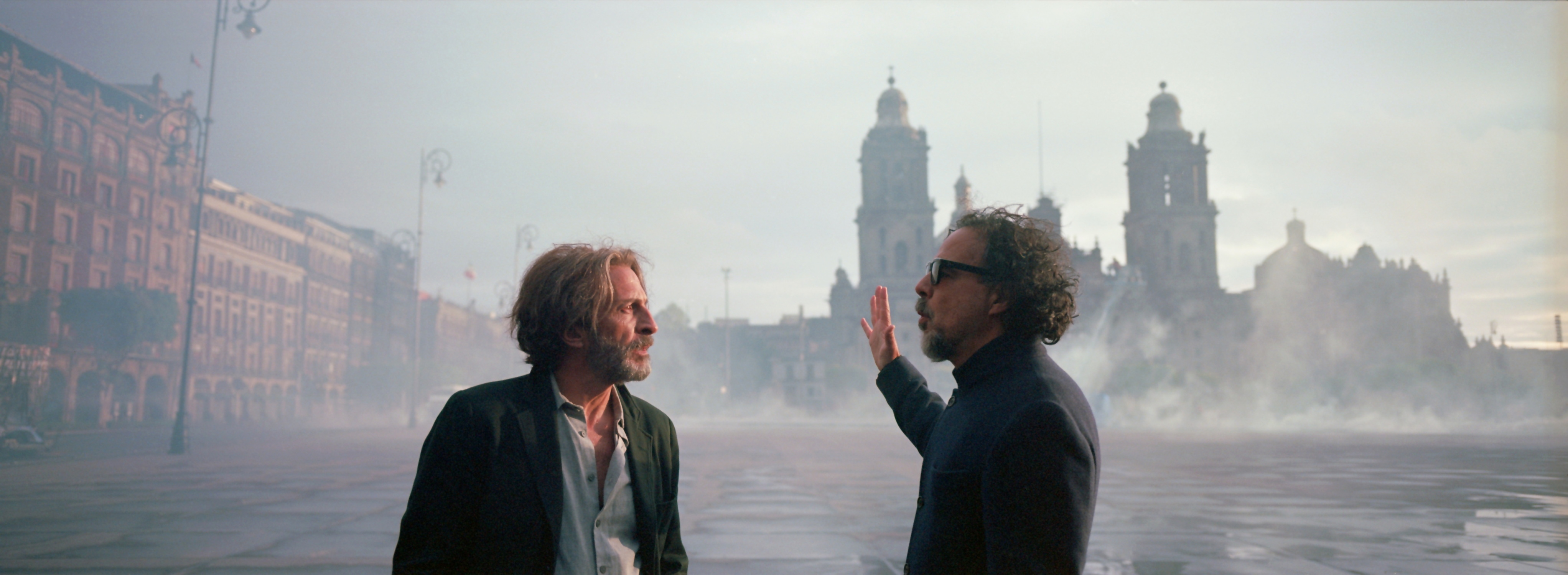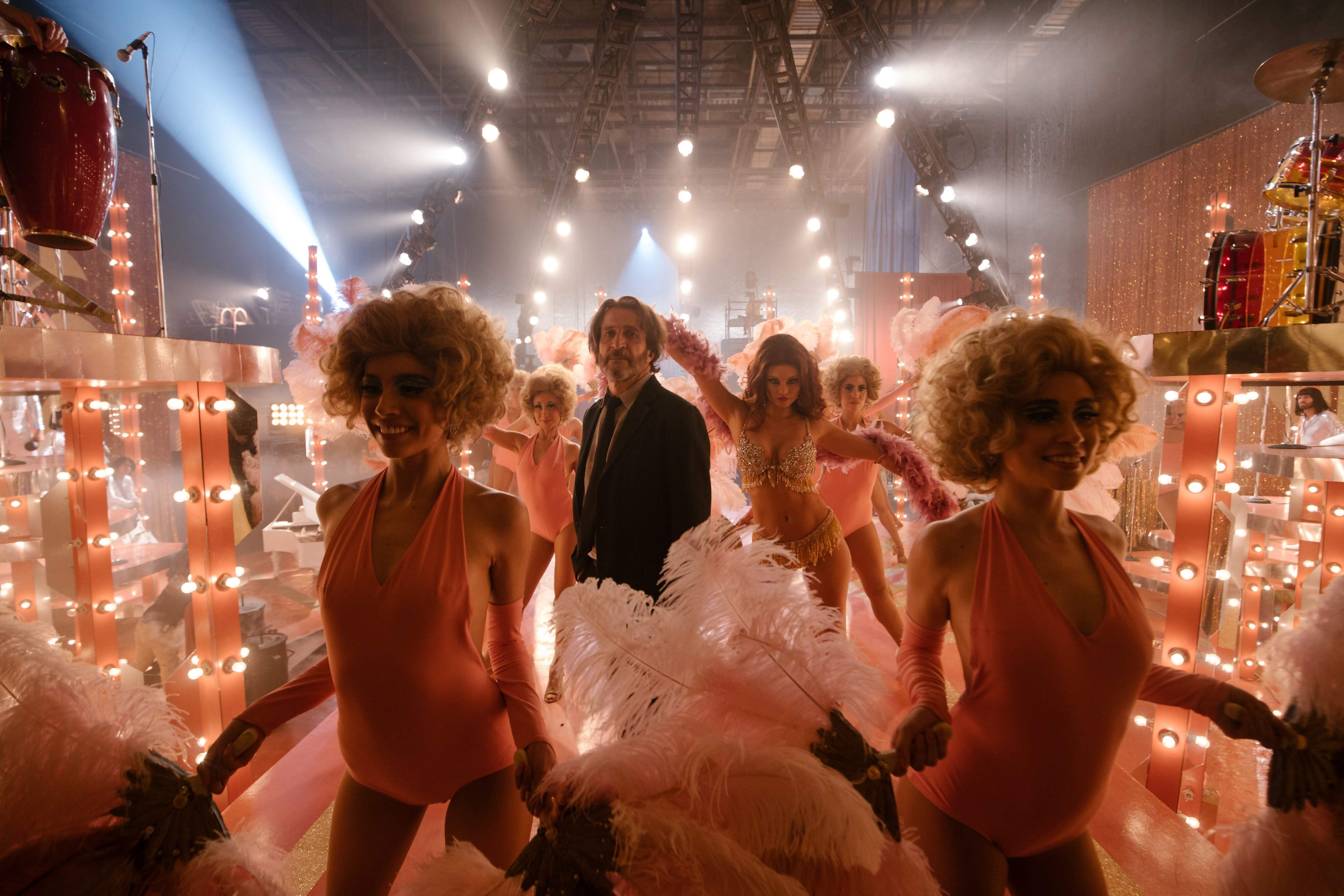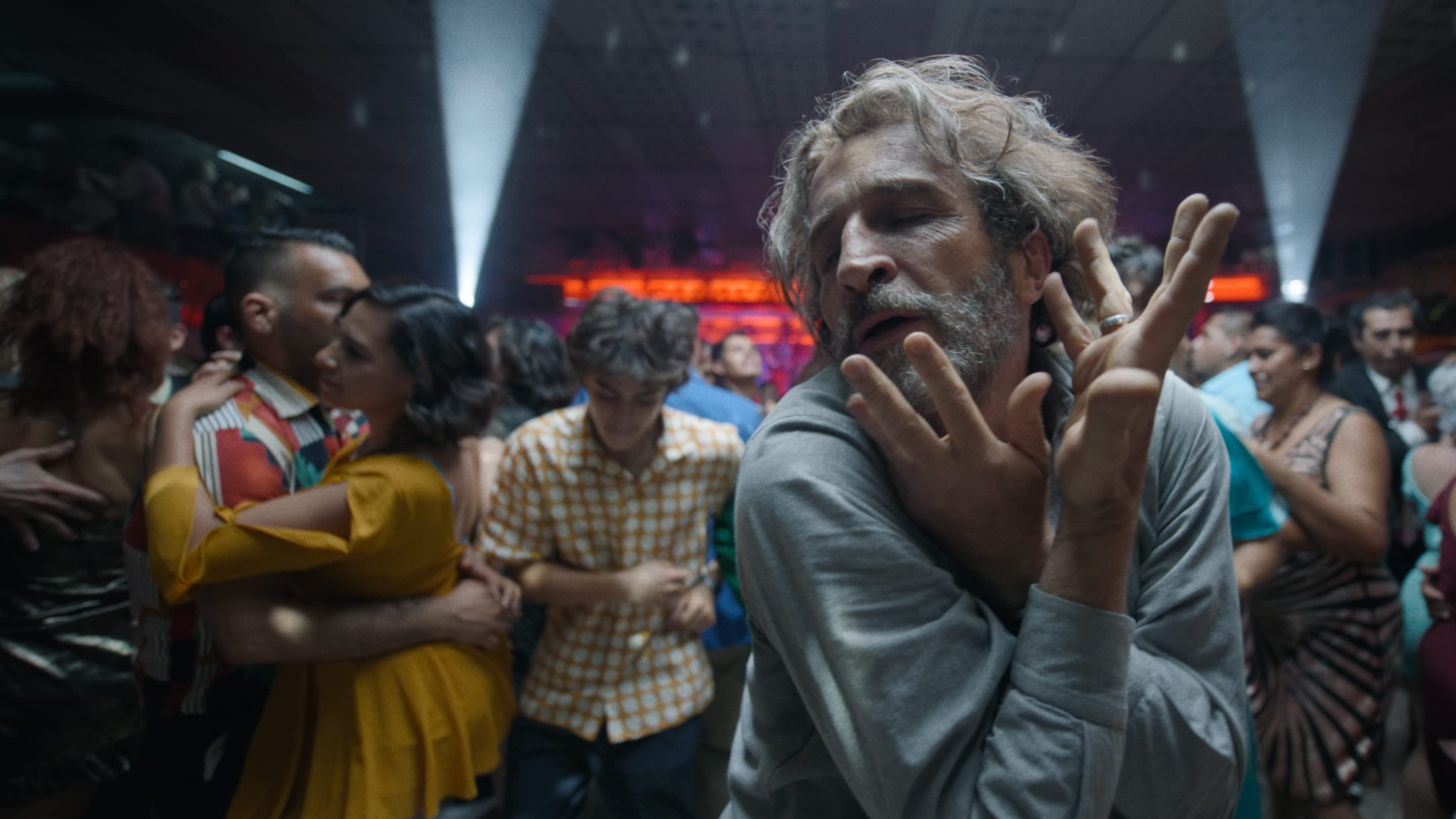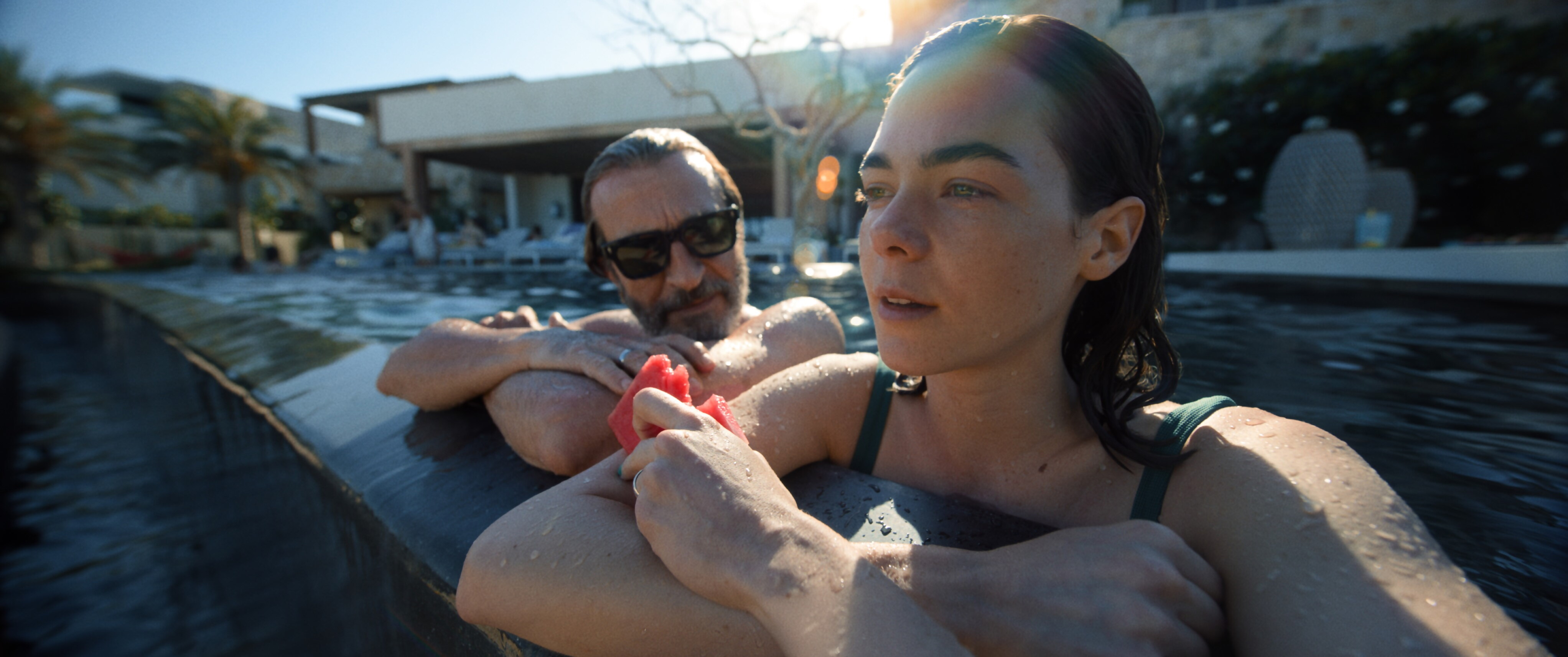
Alejandro González Iñárritu’s newest picture, Bardo, False Chronicle of a Handful of Truths, is a cathartic pilgrimage towards the director’s past and Mexican heritage, viewed from the perspective of his alter ego. It is an idea deeply rooted in the artist’s mind, a film which reminds the viewer of previous metafictional, autobiographical masterpieces like 8 ½ (1963) or The Hand of God (2021).
When asked if he has wanted to imitate the personal style of the auteurs like Federico Fellini or Paolo Sorrentino, Iñárritu declared that he has “never tried to copy anybody.” As the director admits, he “come[s] from a country [Mexico] which has an ancient, millennial Aryan culture of specific visuals and pictorial references to literature and cinema.”
It is the Mexican culture with which the whole film has such a strong affinity. Bardo appears to also be an homage to all the artists that reshaped the director’s cultural awareness.

Credit: Netflix
“Every day I cultivate myself to understand the world I have been living [in]. People from that culture inspired me. Have you read Octavio Paz? Juan Rulfo? Or Jorge Louis Borges and Julio Cortázar? These writers, or exceptional filmmakers like Luis Buñuel and Alejandro Jodorowsky, have always had an impact on my cultural viewpoint,” Iñárritu notes.
“I love Fellini, but there are things beyond which belong to our Mexican sources. My film ‘is composed’ of all these names and titles because it is deeply rooted in the tradition of telling stories from a personal perspective and sharing some similar universal themes. With the viewer, I share my story of immigration, of losing my father, of coming back to the lost home.”
Bardo also offers another take on the cinema to which we’ve grown used to, mostly thanks to American cinema.
Iñárritu wants the audience to discern the cultural differences between the modern films produced in various places. “I do not specifically believe that Bardo can be referred to other kinds of work from further countries. I think it is important to understand our Mexican culture.”
The film is also his first Spanish-language feature film since his unnerving drama Biutiful (2010). “Going back to Mexico was like meeting a good old friend. You remember somebody, but then you encounter him again: that person looks visually different, but has the same passion, and brings you the same joy as before.”
Most of the first reviews remark that Bardo feels like an existential, yet unapproachable journey. Iñárritu responded to the concerns of viewers struggling to find emotional attachment to the film’s characters: “It is what you put in that film of yourself that you later take out. Every person is special, so every viewer will approach other themes that are explored through my movie. It mostly depends on the emotional baggage they carry.”
Bardo’s director also commented on his choice of casting Daniel Giménez Cacho as Silverio Gacho, who can be interpreted as Iñárritu’s self-commenting alter ego. “I met Daniel four years ago: we are the same age, we come from the same city, from the same generation, we both have two kids… Once, while we had dinner with our families, I understood he was on the same existential journey as me. We are both looking inward in a very introspective, even self-examining way. I am aware that he understands my inner self. On top of that, I consider him one of the greatest actors from Mexico.”
As Bardo refers to Iñárritu’s most intimate experiences, it’s clear that family is an important element. Or as Iñárritu puts it, “the heart and the sun of the whole universe of Bardo.”

Credit: Netflix
“Each of the family relations tells us something about the main character. It was crucial to me to depict how these people define Gacho’s personality and determine his choices,” Iñárritu continues.
Another viewpoint was presented by Ximena Lamadrid, who found herself “very relaxed” during the festival because “being present at the London Film Festival has always been one of [her] dreams”.
When asked about her primary approach towards acting in Bardo, she declared that she “immediately said yes to the director because Iñárritu is one of the greatest directors of all time.” Lamadrid believes “it was working with both a genius and a beautiful person” and that “experiencing it was just such a gift for [her].” Although she “did not read the script before shooting”, Ximena felt it is “a personal, relatable and profound film.”
Lamadrid presumes just like the director: for her, Bardo should resonate with every viewer as it has a script composed of nuanced themes. “Nonetheless, it is a film about a special moment when you start looking internally and gain a new open consciousness. And you want to use it wisely, so you ask more questions about yourself and your life’s heritage.”
If she didn’t read a script, how did Ximena understand her character, Camila? “I related to her in many ways: for instance, she grew up in a different place than her hometown, thus I could figure her out immediately. Camila’s task is to understand where exactly she is really from. Furthermore, she wants to find a way to build a relationship with her (before) absent father.” It appears that Iñárritu was not the only person whose biography corresponded with Bardo’s narrative.

Daniel Gimenez Cacho as Silverio and Ximena Lamadrid as Camila. Credit: Netflix
It wasn’t challenging for Lamadrid to find a common ground with the rest of Bardo’s cast. “We had amazing chemistry from the beginning. Daniel [Giménez Cacho] was like a father to me, Griselda [Siciliani] was my second mother, and we connected with Íker [Sánchez Solano] too! There was so much trust and bonding between us.”
Appearing in Bardo was also a debut role for the young Íker Sánchez Solano. When Solano was presented with an opportunity to act in Iñárritu’s movie, he did not hesitate. “I am lucky to walk into this industry through the big doors’ threshold. I have put my whole life effort to be in this place.”
As mentioned by Lamadrid earlier, Bardo’s actors didn’t receive a script before getting on board. “It was such an innovative way to work on the film. I felt that approaching Bardo’s story from that exact attitude was natural. It touched each of the actors’ personal feelings. We were given the scenes a few days before the shooting, so the whole work almost felt like a cinematic experiment,” Solano notes of the experience.
“The moment of going back home after a long time is always something that resonates with me,” says Solano pondering about Bardo’s most important theme. “The main body of the story is a collision between the two images of the past: him and his home. That transition of people and places, which is an effect of time’s passing, was the most alluring.”
Playing a small part in the film felt like a lifetime experience for Solano. “The whole film crew guided me to be calmer about my own performance.” Now, he is aware and ready to “get lost in the great stories and to meet the best people in this industry.”
Bardo, False Chronicle of a Handful of Truths is in the UK cinemas from November 18, before streaming on Netflix on December 16.


